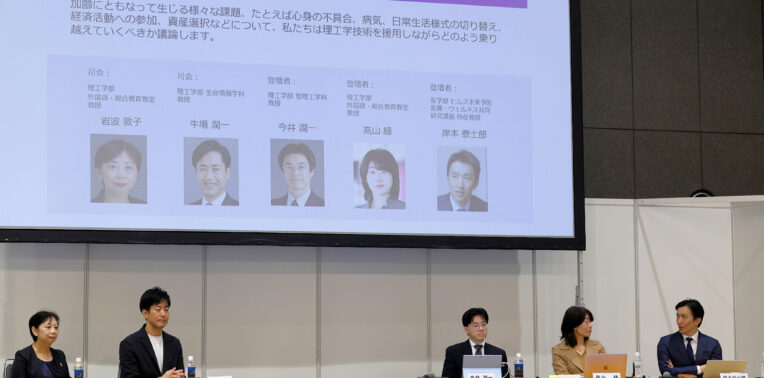
KEIO TECHNO-MALL 2023
— Including a Symposium on “The Relationship between Gerontology and Science and Technology”
- #ChildandNursingCare
- #Events
- #Research
2024.01.23
On December 15, 2023, the 24th KEIO TECHNO-MALL (Keio Science and Technology Exhibition) organized by the Keio Leading-edge Laboratory of Science and Technology was held at the Tokyo International Forum. The exhibition was accompanied by a symposium entitled “Thinking About the Relationship between Gerontology and Science and Technology”, which featured presentations by Prof. Junichi IMAI and Prof. Midori TAKAYAMA of the Faculty of Science and Technology, and Prof. Taishiro KISHIMOTO, a specially-appointed professor from the School of Medicine. The symposium was moderated by Prof. Atsuko IWANAMI and Prof. Junichi USHIBA, and comprised presentations by the three speakers followed by lively discussions on how to solve future issues.
The science of gerontology, also known as aging studies, is a field that has been attracting increasing attention in recent years in Japan, which is the world’s leading country in terms of population aging. The Facility of Science and Technology has long been discussing how to contribute to resolving this major social issue, and the symposium brought together three specialists involved in gerontology research from the fields of financial engineering, psychology, and neuropsychopharmacology, respectively, to discuss ways in which science and technology can be utilized to improve the current situation.
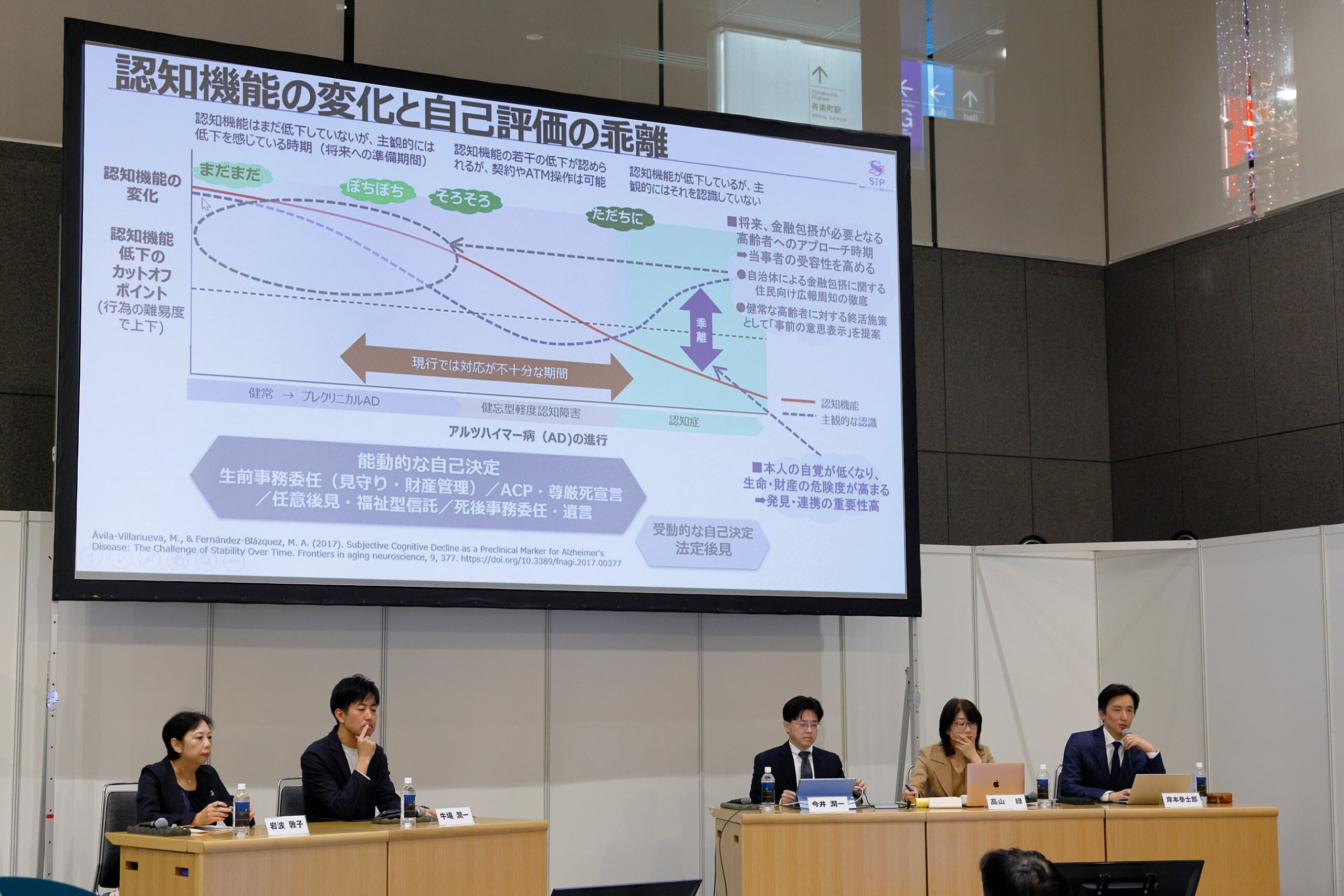
The first speaker was Project Professor KISHIMOTO of the School of Medicine at Hills Joint Research Laboratory for Future Preventive Medicine and Wellness, who reported on the activities of the Research Center for Financial Gerontology, which was launched in 2016. In Japan, where 40% of household financial assets are held by people aged over 70, problems with financial transactions have become more frequent due to factors such as declining cognitive function. With the support of the Cabinet Office, the Center is currently conducting a research project to build an inclusive socioeconomic system aimed at helping elderly people engage in economic activities autonomously throughout their lives. Among the project’s goals are the creation of a system for detecting declining cognitive function at an early stage and providing appropriate support through cooperation between financial institutions, local governments, and welfare organizations; the introduction of a passport that clearly indicates the holder’s ability to exercise judgment when engaging in financial transactions; and the development of quantitative technology for treating psychiatric disorders using psychopathology and natural language processing, all of which hold great promise for future development.
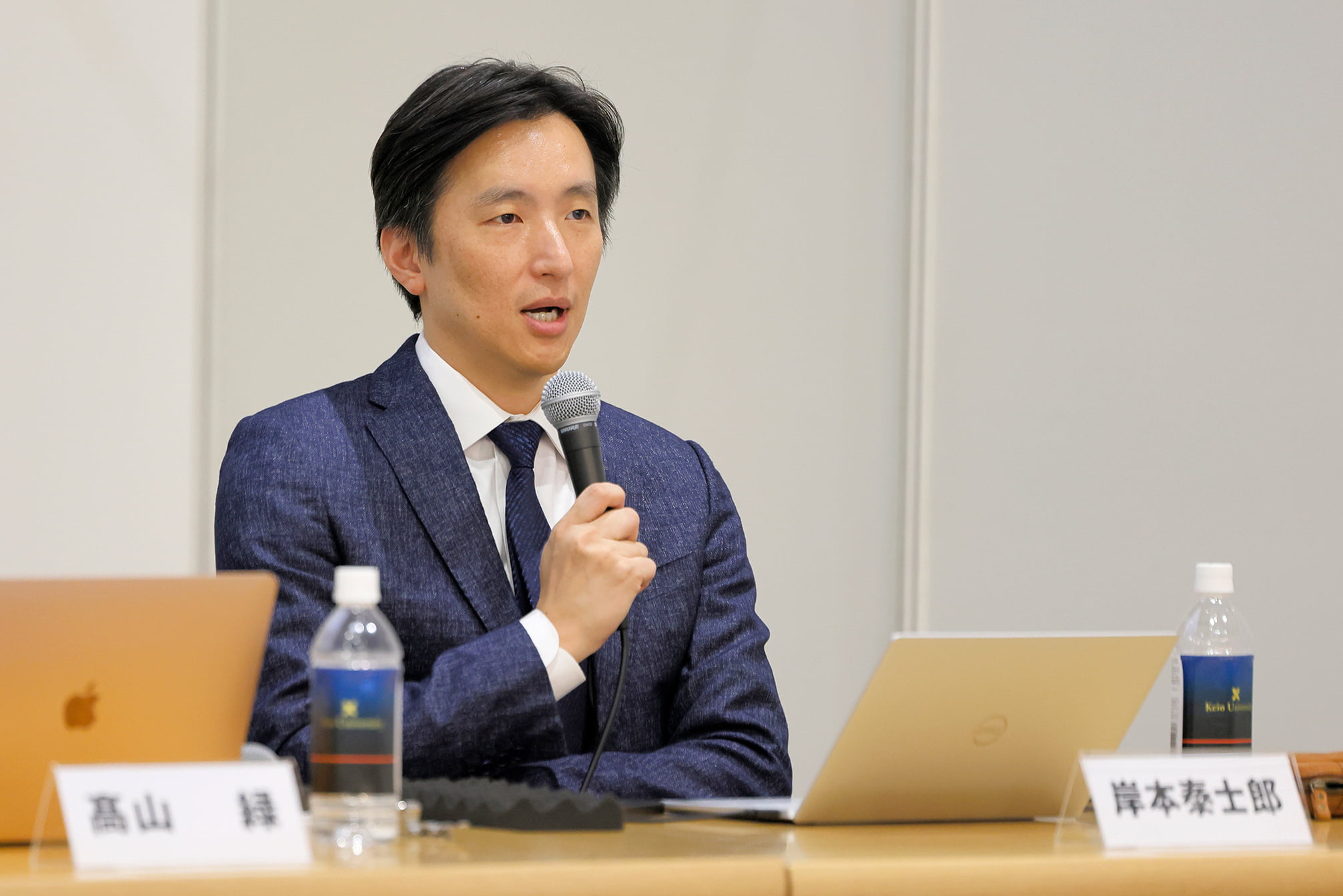
The second speaker was Prof. TAKAYAMA of the Department of Foreign Languages and Liberal Arts in the Faculty of Science and Technology, who discussed the relationship between gerontology and science and technology from the perspective of healthy aging based on her research into life-span development psychology. She stated that the concept of healthy aging itself is undergoing a paradigm shift in today’s super-aging society, and that instead of embracing the pursuit of health in the manner we did in the past, emphasis is now placed on growing older while maintaining and developing the functional capacity with which we are able to remain as far as possible in the physical and mental state we desire and continue to do the things we consider important regardless of any illnesses or disabilities we may have. She also explained that as this functional capacity is formed and maintained through the interaction between an individual’s intrinsic capacity and the surrounding environment, even if this intrinsic capacity declines with age, a supportive environment may enable people to demonstrate a functional capacity that compensates for this decline. In addition, she emphasized her hope that healthy aging can be achieved through wide-ranging developments of science and technology.
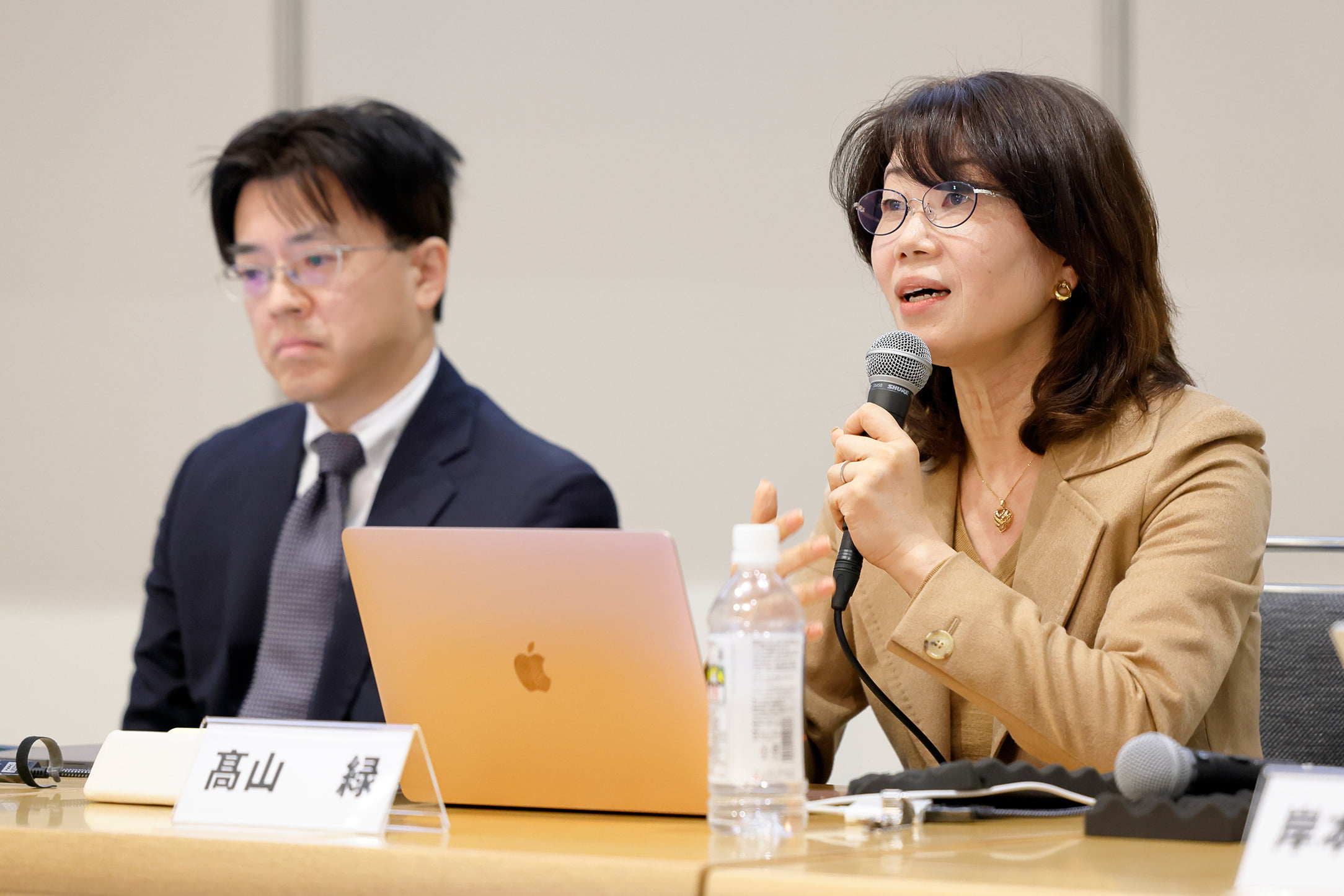
The third speaker, Professor IMAI of the Department of Industrial and Systems Engineering in the Faculty of Science and Technology, talked about gerontology from the perspective of financial engineering and financial risk management. He explained about retirement funds, which are an important topic in financial gerontology, in an easy-to-understand manner, using calculation examples to illustrate how the way in which a person’s savings are managed can change their prospects for life in old age. After that, he named longevity risk, long-term care risk, and dementia risk as three risks that should be considered, and he introduced financial modeling and risk management methods using financial instruments for each of these risks. Finally, from a researcher’s perspective, he touched on a range of issues such as the handling of personal information, the disclosure of analytical information by public institutions, the development of appropriate financial products, and financial education, and expressed his willingness to continue further research and study in the faculty of Science and Technology.
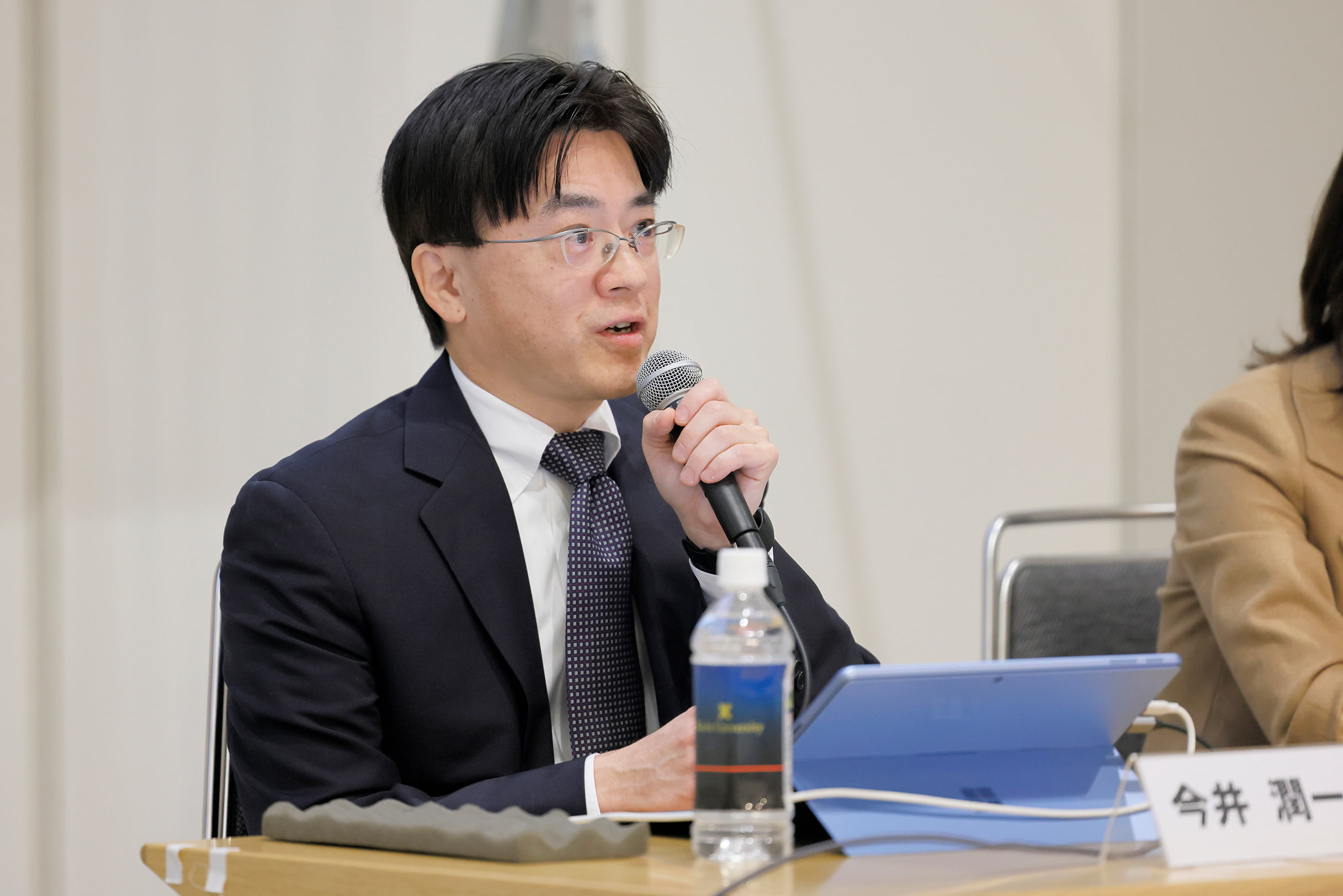
Following the presentations, the three speakers held a discussion in which they shared their views on the importance of taking the user’s perspective into consideration when developing systems and programs and also of ensuring that they are sustainable, convenient, and can be used without conscious effort. They also discussed the urgent need to develop measures to address dementia, and how to overcome the difficult issue of the provision of information from financial institutions and public agencies.
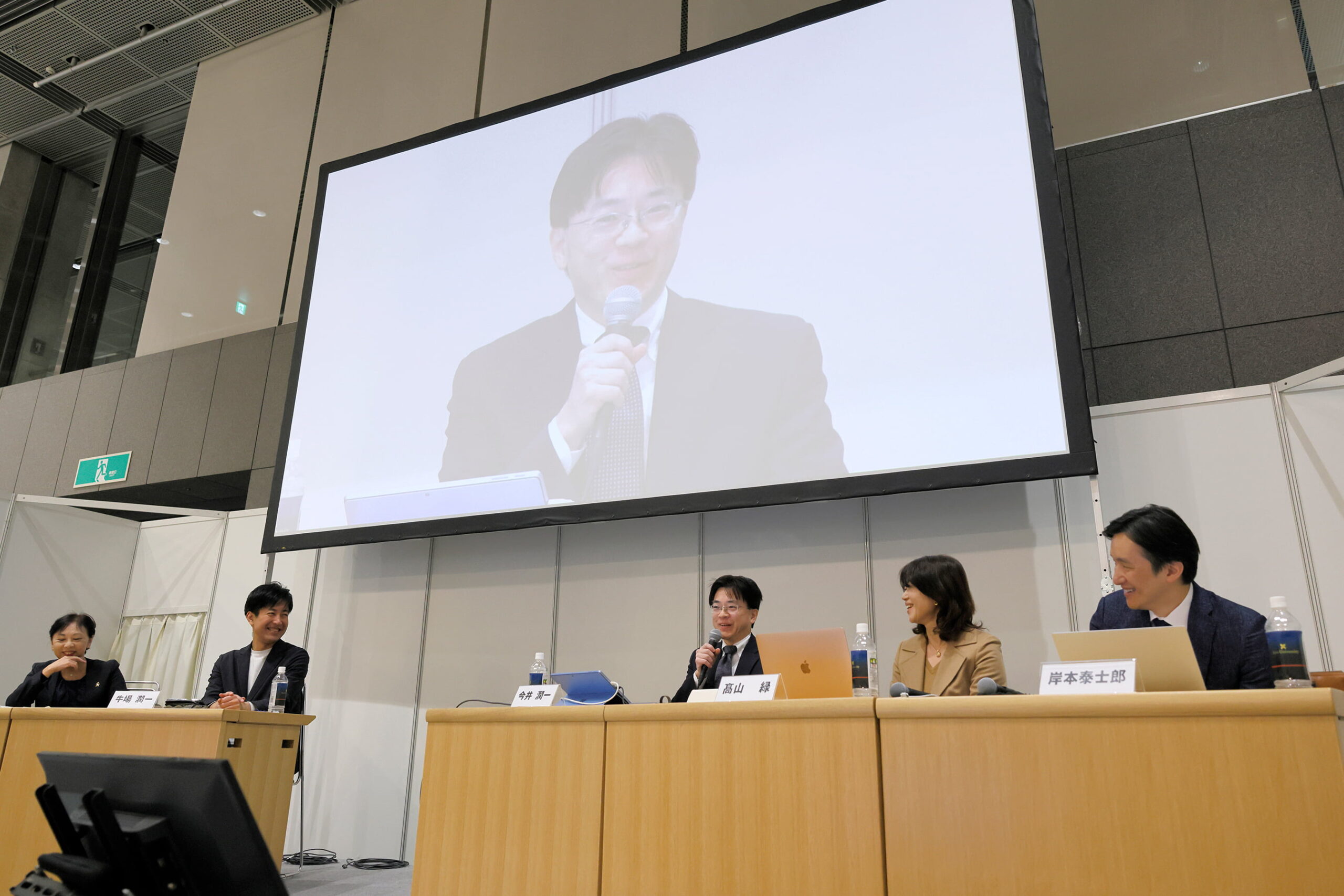
After the symposium, the moderator, Professor USHIBA, who was also involved in the preparations, touched on the significance of holding this year’s event, saying, “This is probably the first time that gerontology has been the theme of this event, which is now in its 24th year. I hope that this symposium has helped people understand that gerontology is a subject that requires a broad range of knowledge, and I would be delighted if it sends a message that the comprehensive strength of the Faculty of Science and Technology, and by extension that of Keio University, can play a major role in the future.”
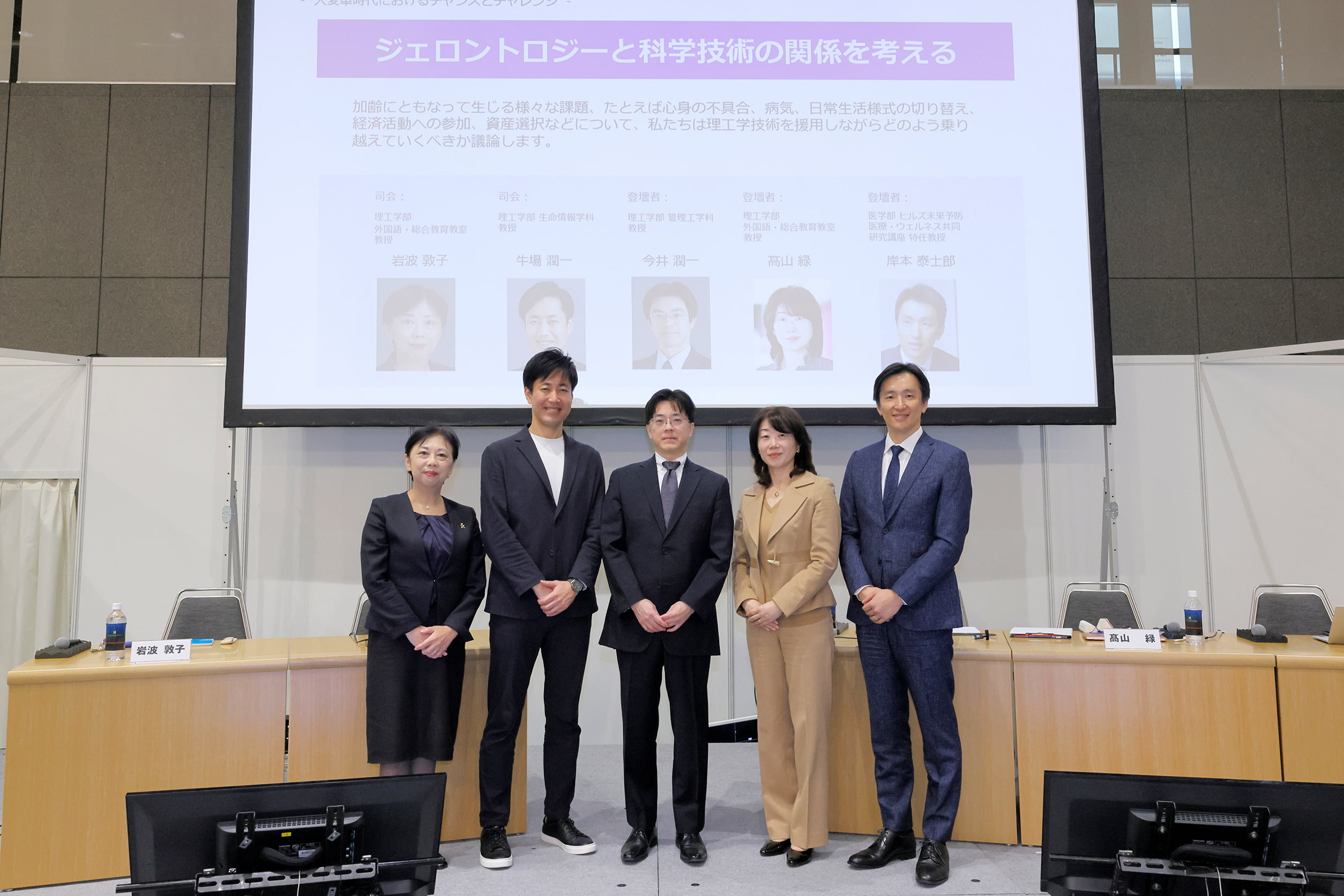
RECOMMEND
-

Toward an Inclusive Society for All:
Ushiba Lab Shows the Power of Brain Waves at the BMI Brainpic 20222023.04.06
-

Empowering the career choices of over 100,000 junior high and high school female students nationwide! Keio Science and Technology participates in Girls Meet STEM College
2024.06.13
-

The “Keio–UCSB Exchange Program” is now part of the “Global Leadership Seminar Field Study Program”
2025.06.20
